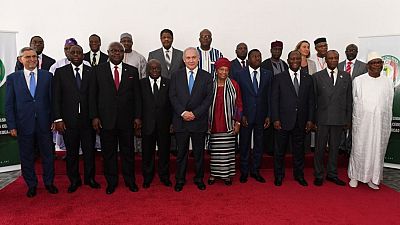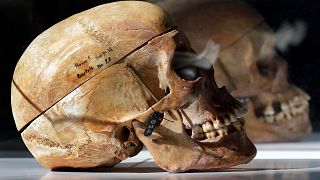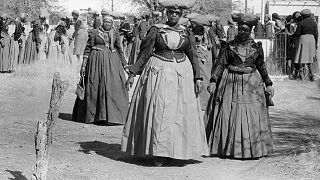Namibia
The Economic Community of West African States (ECOWAS) has been tipped to be in the running for the 2017 Nobel peace prize for the role it played in the ouster of longtime Gambian ruler Yahya Jammeh.
The Nobel nomination process requires secrecy until after 50 years, yet, annual rumours and confirmation by nominators placed the West African regional bloc in the list of the 2017 potential laureates.
ECOWAS played a key role in the restoration of democracy in The Gambia after the December 2016 election that saw Adama Barrow beat incumbent Yahya Jammeh at the polls.
Yahya Jammeh who has ruled the small West African country for 22 years after a military coup, refused to accept the results which he described as fraudulent.
Tensions were high when he annulled the results and ordered fresh polls.
ECOWAS initiated series of meetings for him to cede power, and it took six weeks of negotiations, military intervention and immunity deals for him to agree to leave power and go into exile in Equatorial Guinea.
The 15-member body continues to face tensions in the region including the current chairperson Faure Gnassingbe’s country Togo where the people are protesting for an end to the over 30-year rule by his family.
They want the two-term limits to the presidency restored and other constitutional reforms.
The 2017 Nobel peace prize winner will be announced on October 6. There are 318 candidates including 215 individuals and 103 organisations nominated this year, the Nobel Foundation said.
If ECOWAS is announced the 2017 Nobel peace prize laureate, the organisation will receive a citation and an 18-carat gold medal that bears the face of the founder Alfred Nobel at an award ceremony on December 10. The prize includes SEK 9,000,000 ($1,110,000) which will be paid next year.
The likely nominees include Syria’s White Helmets for their efforts in the country’s civil war, the UN refugee agency for their response to crises in Syria, Europe and Myanmar, and Pope Francis for his stance on refugees and climate change among others.
History of the Nobel Prizes
The Nobel Prizes have been awarded since 1901 and conferred on top achievers in six fields: Physics, Chemistry, Literature, Physiology or Medicine, Promotion of Peace and Economic Sciences.
Prize-winners are often individuals, teams of two or three and organisations called Nobel Laureates. The laureates are nominated by their peers, including former laureates, politicians, justices and academics among a few others, and then secretly chosen by Nobel Committees and prize-awarding institutions.
For the peace prize, the Norwegian Nobel Committee composed of five members is appointed by the Norwegian parliament.
The Committee chooses the laureates through a majority vote before the winner is announced in October.
The awards were created by Swedish scientist and philanthropist Alfred Nobel who bequeathed most of his fortune to the establishment of the prize upon his passing in 1896.
The first prizes were presented in 1901 and since then, over 900 people have been awarded.
Details of the selection process and nominees can only be revealed until after 50 years.
Despite the Nobel Foundation’s requirement that prizes be awarded only to living recipients, Canadian immunologist Ralph M. Steinman was awarded a 2011 Nobel for medicine posthumously. The committee did not know he had died three days prior.
The winners receive their prizes at a ceremony on December 10th – the anniversary of the death of Alfred Nobel.
All the prizes except the peace prize are presented in Stockholm by the King of Sweden. The peace prize is awarded in Oslo by the Norwegian Nobel Committee with the King of Norway.
The prize includes a sum of money, a citation and an 18-carat gold medal that bears the face of the founder Alfred Nobel. The money is received after a year.














01:12
ECOWAS calls for restraint in violent protests in Togo
01:47
Sierra Leone’s Bio takes over as ECOWAS chair
Go to video
ECOWAS leaders meet in Abuja amid regional tensions and leadership transition
48:03
Half a century later, Is ECOWAS falling apart? [Africanews Debates]
01:01
BET awards to honour four legendary Black performers
01:11
ECOWAS at 50: Celebrating unity as the region fragments